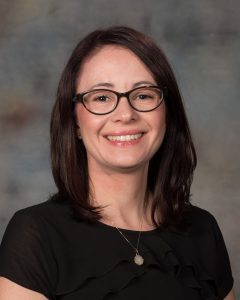Posted April 27, 2017 by Tiffany Lee
The April issue of Research News included an article about the benefits faculty members reap from traveling to Washington, D.C., to meet with program officers. To illustrate the advantages of these trips – and how the Office of Research and Economic Development can help you prepare for the meetings – this issue features the first of a three-part Q&A series with researchers who have participated in recent visits.
Ana María Vélez is an assistant professor in the Department of Entomology and a member of the 2016-2017 class of the Research Development Fellows Program. Her research interests include insecticide and environmental toxicology, insecticide resistance management and molecular genetics. In March, she traveled to D.C. to visit with U.S. Department of Agriculture and National Science Foundation program officers. Here’s what she had to say about her experiences.
ORED: How did you prepare for your meetings?
Vélez: Leaders from the Research Development Fellows Program helped us prepare. Tisha Mullen (director of the Office of Proposal Development) trained us on how to organize concept papers, where to look for different funding opportunities and how to determine which agencies and programs could be a good fit. She also helped me prepare a three-minute elevator speech and develop questions to ask the program officers.
For each meeting, I adjusted my concept paper to match the agency’s focus. I pitched certain research ideas based on the programs I was targeting. But even though I went to the meetings with certain ideas in mind, the program officers sent me to see other people based on our discussions. So it’s good to have a variety of ideas to pitch. And it’s good to ask the program officers about research areas that may become important in the future.
ORED: Which parts of the visit were most useful?
Vélez: I realized that some of the programs I thought would be a good fit were actually not. That’s good to know so you don’t waste time developing a proposal that has no chance of being funded. Another benefit was that by interacting face-to-face with the program officers and discussing their interests, you develop a relationship that makes you memorable. Next time you call, they’ll remember you.
The program officers encouraged me to explore related areas of research with better funding potential. There are programs out there that I didn’t even know existed, but the program officers made me aware of them and mentioned my ideas might fit there.
ORED: What was the best advice you received from the program officers?
Vélez: A program officer at NSF talked to me about the broader impacts requirement. When you’re a new researcher, it’s easy to make this component elaborate and complicated. But this program officer said the broader impacts plan can be simple, and you don’t have to go overboard. For example, for NSF, it might be enough to say that you will have undergraduate researchers of Hispanic or other minority descent in your laboratory.
ORED: Why would you recommend going on these visits?
Vélez: As a new researcher, you’re still learning how all of these programs work and where your research could fit. The visits help you better target which types of grants you should apply for, rather than wasting your time. Also, you feel more comfortable contacting program officers in the future and feel at ease talking to them. They give great advice about what to put in the application and about mistakes new researchers make, and how to address and be conscious of that.
One of the program officers I talked to complimented our university for helping with these trips and said it’s a great idea and important for faculty.
For more information about resources available to faculty to support sponsor engagement and proposal development, contact Tisha Mullen, director of proposal development, at 402-472-2894. Visit Faculty Travel Awards to request funds to help defray the costs of travel to visit funding agencies.






